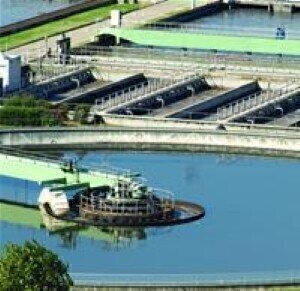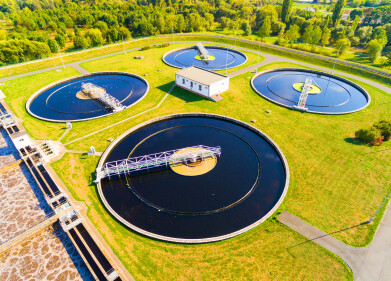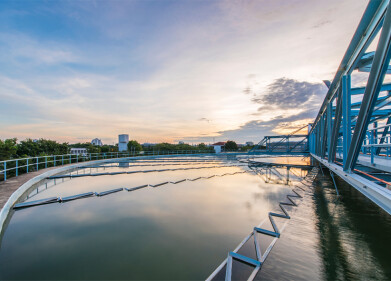Water/Wastewater
EU Water Rules Leading to Unnecessary UK Carbon Emissions
Dec 11 2015
The Institution of Mechanical Engineers is calling for the urgent review of European Union (EU) water legislation, which includes unreasonable waste water quality demands which are driving up energy and chemical use as well as greenhouse gas emissions.
The Institution’s Catchment Management in the Water Industry report says that while the EU Water Framework Directive has improved natural water quality, particularly in UK rivers, this has only been achieved through energy and chemical intensive treatments which are hugely damaging to the environment.
Dr Jenifer Baxter, Head of Energy and Environment at the Institution of Mechanical Engineers, said:
“EU water regulation is aimed at improving the environment but the excessively stringent, universal rules have led to practices which do the very opposite. Currently, the negative side-effects of this directive to the environment may outweigh the benefits.
“The UN climate change talks will hopefully help put providing clean water and sanitation for all and driving down world emissions in the fore-front of political decision making; and revising the EU Water Framework Directive could be a relatively straight-forward way to help.
“A ‘one size fits all’ single European vision to improve water quality is neither effective, efficient nor appropriate. We need an urgent review to enable a more holistic approach to water management.”
According to the report, current legislation is overly stringent and improvements in UK water quality have only been achieved through the construction of high energy intensive treatment processes at sewage treatment works necessary to meet the tightened effluent consent levels. This is costing UK water companies up to £9 million a year on electricity to run 300 blowers for activated sludge plants. Industry estimates suggest that 1% of all of the UK’s electricity is consumed by compressors used for the aeration of wastewater at the nation’s sewage treatment works. While Ofwat data from 2010 stated that Greenhouse Gas (GHG) emissions from the operational side of the water industry are approximately 0.7% of the total UK emissions.
Another area of waste water treatment that has increased in importance, is the requirement to control levels of nitrogen and phosphorus. Levels of both have increased in raw sewage due to the increasing use of detergents and fertilisers. Although natural processes do remove both nitrate and phosphate in most cases, the levels of reduction required cannot be achieved through natural processes alone and it is necessary to use chemicals, typically ferric chloride, ferrous sulphate or aluminium salts. The GHG emissions associated with the use of these chemicals is significant and continuity of supply is becoming a major concern.
The report’s recommendations are:
1.The Effective Catchment Management called for by Ofwat will not happen without structural reform. The water industry is too complex to achieve these goals. Catchment Management Teams must be given powers to make binding decisions, including the management of finance to implement those decisions. This should be recognised and treated as a key aspect of Ofwat’s strategy.
2.The current Water Framework Directive has created a number of unintended consequences. An example is the way it is causing greater environmental impact through unreasonable waste water quality demands, driving up energy and chemical use. The Directive needs to be urgently reviewed to enable a more holistic approach to water management across the whole water network.
To read the full report Catchment Management in the Water Industry click on the link at the top of this email.
Digital Edition
IET 34.2 March 2024
April 2024
Gas Detection - Biogas batch fermentation system for laboratory use with automatic gas analysis in real time Water/Wastewater - Upcycling sensors for sustainable nature management - Prist...
View all digital editions
Events
Apr 30 2024 Melbourne, Australia
Apr 30 2024 Birmingham, UK
May 03 2024 Seoul, South Korea
May 05 2024 Seville, Spain
May 06 2024 Minneapolis, MN, USA



















